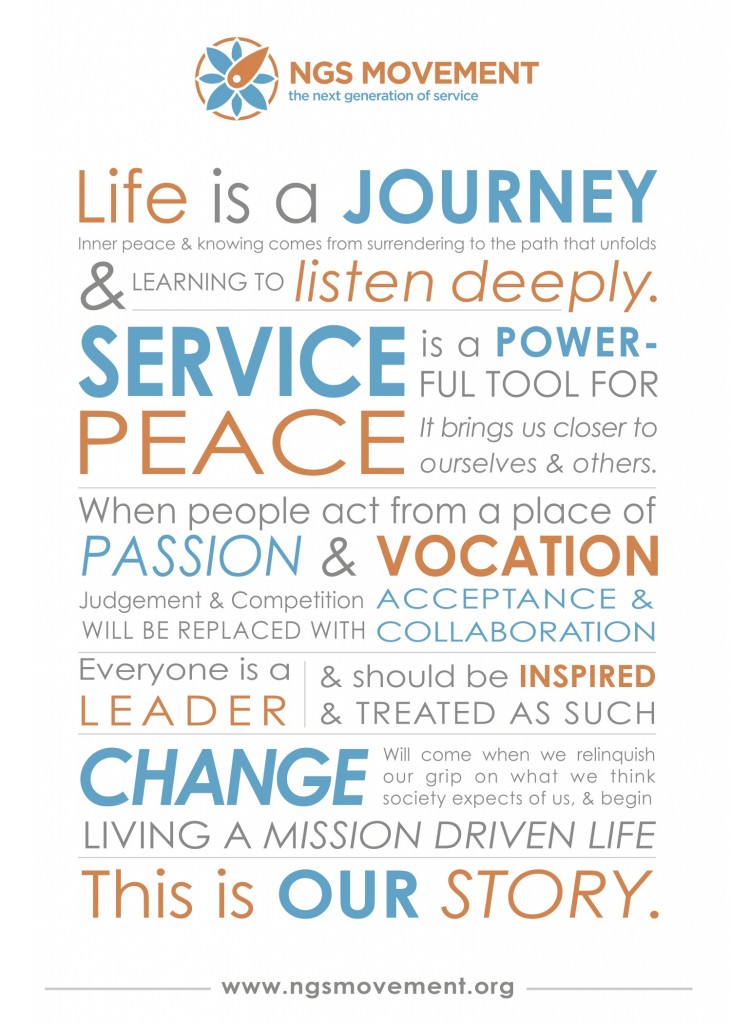Occupy Wall-et
With election season approaching, people across America are considering the kind of country they want to live in. As is evident from continually declining voter turnouts, many of us struggle to see the relevance of voting in our society. The government is increasingly at the whim of corporate interests and our votes seem to do little to make a difference. As many take to the streets in frustration this election season, NGS wants to remind you that everyday actions can be a force for change. We live in a capitalist country where our choices in the marketplace are arguably a more accurate representation of our personal values than is our vote. We’ve got to think twice about where we pump our gas, eat lunch, and who we “like” on Facebook. This election season, we encourage you to vote not just with your ballot, but also with your wallet.
Unlike the government, corporations do not have a legal responsibility to “protect the people.” Quite to the contrary, they have a responsibility to protect the financial interests of their stakeholders. And corporate interests are increasingly dominant in politics. In its 2010 ruling in Citizens United vs. FEC, the supreme court gave free range to corruption by allowing corporations to donate unlimited amounts of money in support of a political campaign[1]. It is hardly a surprise that our government is not doing a great job representing our interests.
Between 1998 and 2005, ExxonMobil spent close to $67 million on lobbying, more than any other oil and gas company[2]. This money directly supported politicians who voted for oil subsidies. In return for its “investment,” the oil industry as a whole receives up to $113 billion per year in direct federal subsidies, funds that could instead be allocated toward projects that serve the public good, such as the construction of new mass transit systems. And lobbying isn’t restricted to the oil and gas industry. In Jonathan Safran Foer’s book “Eating Animals,”[3] he explores how industrial farming has completely eclipsed traditional, humane, antibiotic-free, non-genetically modified farming methods, and that every cent that we pour into this industry only encourages this eclipse.
We can, and should, complain about these injustices. But beyond that, we have to look to the source of corporate influence– our wallets. Unsettling as it may be, corporations get their power from you and me, through the money we spend. The more we spend, the more funds corporations have to lobby for their own monopolies, eventually smothering our voice.
Conscious consumerism offers both a means of making a political statement and directly supporting producers who share your values. It is hard to spend twice as much money on local, organic tomatoes, versus the factory farmed ones at your grocery store. The trick is to think of that extra money as a vote for cleaner water, local markets, and solar-powered food.
And while a good portion of our generation is working in minimum wage jobs, we are a social media generation and whom we choose to follow on Twitter or “like” on Facebook is worth more than we might think. Marketing professionals in corporate offices across the country are analyzing social media data to understand what we “like” and “share” so they can be the first to give it to us. If enough people “like” responsible companies, other entrepreneurs or established companies will jump on the idea, and other consumers will want those products[4]
Particularly in this chaotic and corrupt political climate, it is hard not to feel disillusioned, helpless and without a voice. But rest assured that supporting companies and goods produced in a way that is in line with your ethical values can be worth just as much as your vote. Let’s beat Wall Street at its own game, and vote with our wallets this election season.





